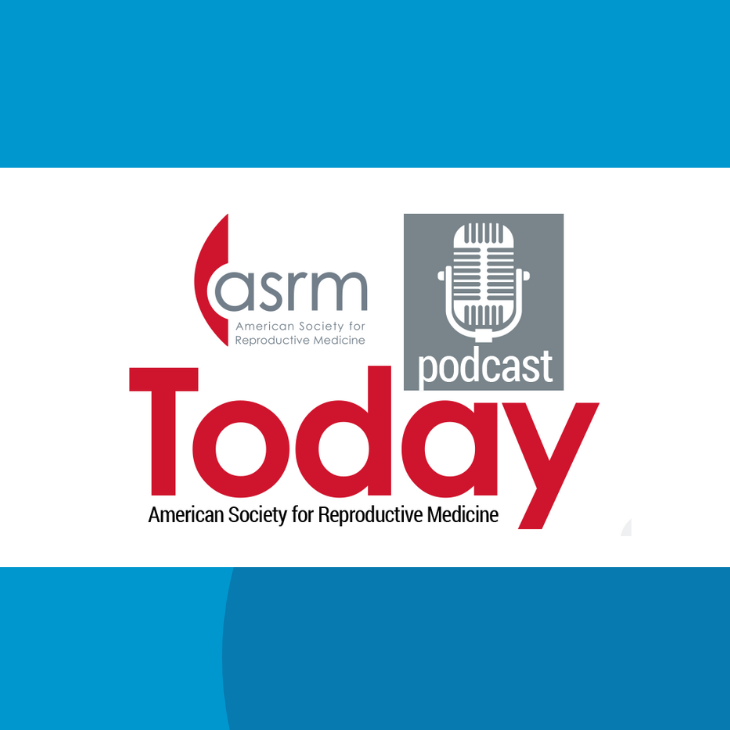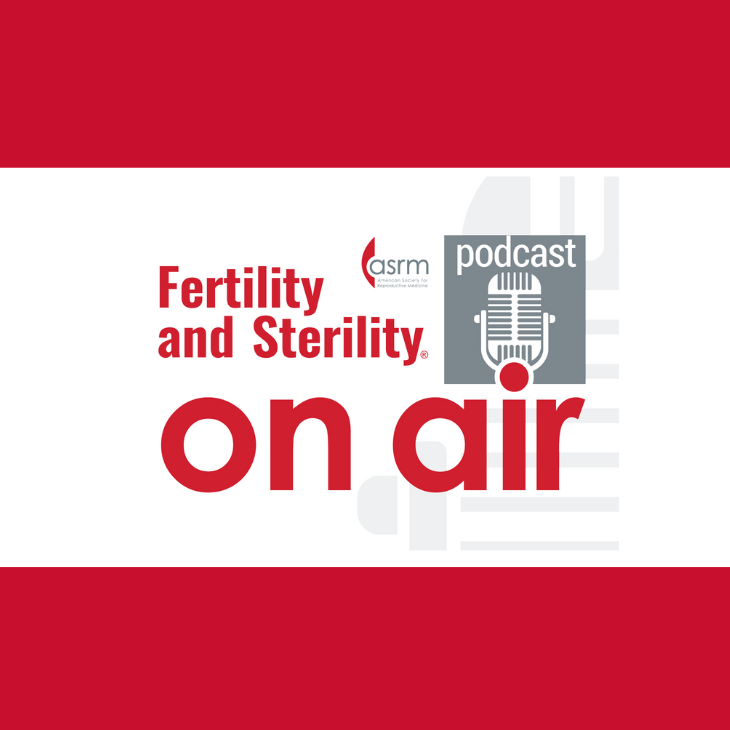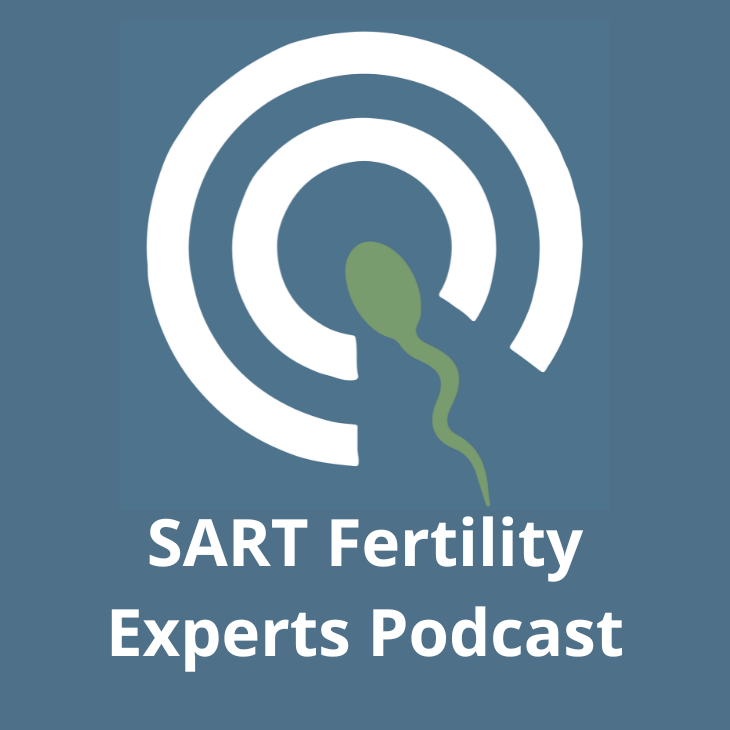
Transcript
Join ASRM 2024 in Denver from October 19-23 for a comprehensive look at reproductive health and fertility. This podcast highlights the ASRM patient education committee’s efforts to create inclusive, plain-language resources that help patients understand their diagnoses and treatment options. Through clear and compassionate communication, ASRM promotes better care by reducing barriers to reproductive health. Learn more about key topics like fertility awareness, lifestyle impact, and treatment options, and explore the valuable resources available on reproductivefacts.org. Register now for the ASRM 2024 Scientific Congress and Expo.
Are you ready to be at the forefront of family building and reproductive health? Join us for ASRM 2024 in Denver, Colorado, October 19th through the 23rd. This year's event features expanded meeting spaces, more seating, and a new global health track as part of a comprehensive program that goes beyond infertility to cover all aspects of reproductive health. We welcome members, trainees, and colleagues from every corner of the globe.
Join us for an unforgettable experience at the ASRM 2024 Scientific Congress and Expo. For more information and to register, visit asrmcongress.org. Reproductive medicine focuses on helping individuals and couples with fertility issues and reproductive health concerns. Patient education in this field is crucial for understanding the conditions, treatments, and lifestyle modifications that can improve outcomes.
Some key topics commonly addressed in reproductive medicine patient education run a wide breadth, such as fertility awareness and evaluation, lifestyle and fertility, common causes of infertility, treatment options, and many more. Here at ASRM, as an organization and in the education department, patient education is something that we are constantly improving and promoting. I am Jeffrey Hayes and this is ASRM Today.
Welcome to ASRM Today, a podcast that takes a deeper dive into the current topics in reproductive medicine. Episode 6, patient education. In continuing to think about our theme of equity, access, and innovation this season, I wanted to take an opportunity with this topic to go inward and share with listeners some of the ideas that the people of the ASRM patient education committee have about the role of the committee and what it offers, primarily through our website reproductivefacts.org.
Dr. Micaela Stevenson, member of the ASRM patient education committee. So we essentially come up with patient education materials that are designed for patients to be able to use and for providers to be able to direct their patients to on the ASRM website. That includes explaining what patients are expecting to do for treatment, that explains their diagnoses, and then what they can kind of expect to happen for their treatment journey depending on their diagnoses. It's really exciting because it means that we get to use plain language and use all the knowledge that we get over the course of our years of training to be able to help patients better understand and adjust their expectations appropriately when they are about to go through treatment.
Dr. Lis Regula, member of the ASRM patient education committee. So all of us within the patient education committee are working together to help Harriet and the rest of ASRM staff produce high quality inclusive literature that is informative for patients, accurate, and uses language that's going to be welcoming for those patients. We don't want educational literature to be stigmatizing or one more barrier for people who are already trying to get help for something that may be really emotional for them.
The committee has large goals of providing information that is inclusive yet written in a more conversational or plain language to be accessible and without barriers for those seeking reproductive care. But why is it important?
Lis Regula. They're important from the provider perspective because we're modeling that inclusive language and by ASRM, a known, respected body within the field of health care, modeling language that doesn't other people.
We're setting a good example and we're showing providers how they can use that language too.
Micaela Stevenson. We try really hard to work together so that we're using a language that any patient could be able to understand and so making sure that the reading level isn't too high or that we're not using medical jargon or too complex of terms for patients to be able to understand and to improve patients' compliance with treatments because in fertility treatment, it's so important that patients do things at very specific times on very specific schedules or that they have a really good understanding of what's going to happen.
Modeling language and leading the way, the importance that ASRM set the standard by providing inclusive, accessible materials to educate and ultimately provide better care. At the end of the day, providing patients with clear, compassionate, and personalized information is key to helping them navigate their options in reproductive medicine. We encourage all our listeners, whether you are a provider or patient, to go to reproductivefacts.org and explore the resources that are available for all people.
Join me next week as we preview some of the outstanding offerings at the upcoming ASRM 2024 meeting in Denver, Colorado. Until next time, I'm Jeffrey Hayes and this is ASRM Today. This concludes this episode of ASRM Today.
For show notes, author information, and discussions, go to asrmtoday.org. This material is copyrighted by the American Society for Reproductive Medicine and may not be reproduced or used without express consent from ASRM. ASRM Today series podcasts are supported in part by the ASRM Corporate Member Council. The information and opinions expressed in this podcast do not necessarily reflect those of ASRM and its affiliates.
These are provided as a source of general information and are not a substitute for consultation with a physician.
ASRM Today

ASRM Today: Equity, Access, and Innovation, Episode Seven: ASRM 2024 Preview Part Two
Explore key sessions at ASRM 2024, including mental health in fertility care, male infertility research, and equitable contraceptive access. Join the discussions in Denver.
ASRM Today: Equity, Access, and Innovation, Episode Seven: ASRM 2024 Preview Part One
Preview the ASRM 2024 Congress with insights on postgraduate courses covering fertility education, innovation, and increasing access to reproductive care.
ASRM Today: Equity, Access, and Innovation, Episode Six: Patient Education
This episode explores the importance of inclusive, plain-language patient education, helping patients understand diagnoses and treatment options.


